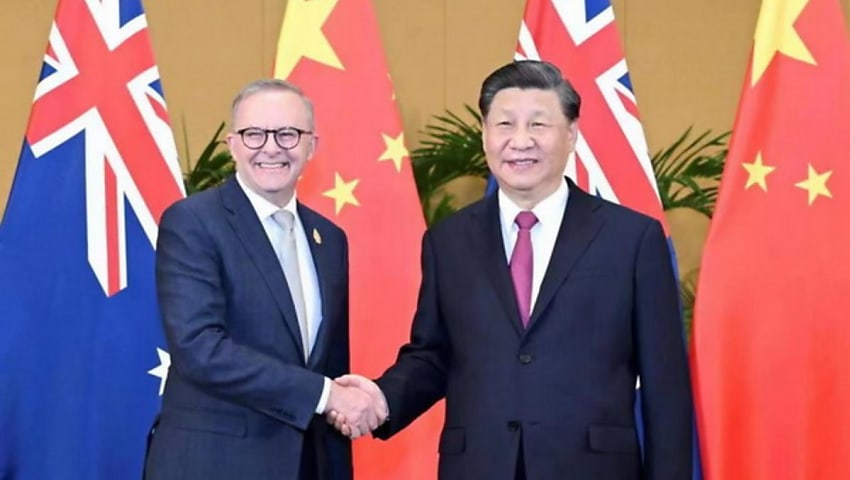Despite positive signals from the first meeting between the leaders of Australia and China in six years, commentators have poured cold water over suggestions that the meeting marks a changing era of cooperation.
The Prime Minister’s short and succinct press release following his meeting with Chinese President Xi Jinping detailed the new government’s China policy.
“This was another important step towards the stabilisation of the Australia-China relationship,” the release read.
“I reaffirmed the Australian government’s view that it is in the interests of both sides to continue on the path of stabilising and developing our Comprehensive Strategic Partnership.
“We are always going to be better off when we talk to each other, calmly and directly.”
When asked whether the PM was “recalibrating” the nation’s relationship with China, the PM responded with the importance of maintaining constructive dialogue.
“I think that it is not a good thing that there had been no discussions at leader level with our major trading partner,” he said.
“Now, you know, it’s good that that dialogue has occurred. And I would have thought that it is clearly in Australia’s national interest.”
While it would appear that relations between the two countries are warming, Justin Bassi, executive director of the Australian Strategic Policy Institute (ASPI), urged caution in The Strategist this week.
Fundamentally, Bassi observes that there is no evidence that China has changed its course. To Bassi, the Chinese government remains the same, rejecting liberalism and seeking to institute itself as regional hegemon.
“The Chinese Communist Party wants a region and ultimately a world in which it is the dominant geopolitical force; in which it sits at the centre of global economic activity; in which it remains inoculated from the contagious appeal of democracy and liberalism,” Bassi wrote.
However, with Australia having remained steadfast amid a trade war, Bassi explained that Prime Minister Albanese achieved an economic and geopolitical win, demonstrating that Australia would not cower to Chinese threats.
“What we can celebrate is the fact that, by refusing to compromise on any area of Australia’s national interest, Prime Minister Anthony Albanese was able to go into the meeting with his counterpart in a position of strength,” Bassi theorised.
“Beijing has effectively accepted that its coercion of Australia has, so far, been unsuccessful. That is a significant achievement, not just for us but for all countries that were watching to see how far Beijing would go to bend another country to its will.”
Despite this, Bassi warns that the ongoing diplomatic discussions will be akin to a “12-round bout,” where China will attempt to increasingly test the nation’s determination. This includes demanding trade-offs in exchange for Beijing to drop trade sanctions or release detained citizens.
In Bassi’s view, even if China rectifies such diplomatic failures, “Australia should not reward Beijing for simply ceasing to punch us in the face.”
Get involved with the discussion and let us know your thoughts on Australia’s future role and position in the Indo-Pacific region and what you would like to see from Australia's political leaders in terms of partisan and bipartisan agenda setting in the comments section below, or get in touch with


